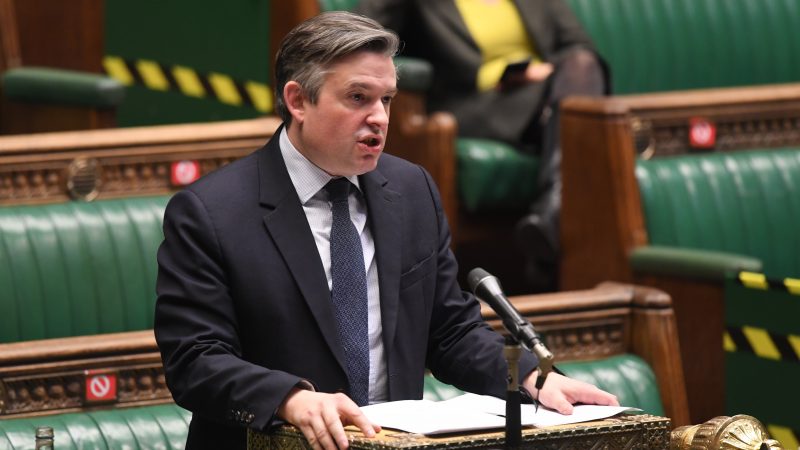
Jonathan Ashworth has urged MPs to back Labour’s plan to reform job support after analysis revealed that economic inactivity among the over-50s has risen in every part of the country since the pandemic.
Speaking ahead of an opposition day debate on Tuesday, the Shadow Work and Pensions Secretary said: “Labour has led the debate on getting Britain back to work with a clear welfare reform plan to deliver specialist help to those who have been written off under the Tories.”
Ashworth argued that “we’re wasting the talents of so many people across the country who are desperate for quality work”, declaring that a “generation of over-50s in every part of the country have been given no help”.
“MPs must back our welfare reform plans to get Britain back to work, raise living standards and target the highest growth in the G7,” he added.
Analysis from the Labour Party, released today, revealed that every part of the UK saw a rise in the number of over-50s who are economically inactive between March 2020 and September 2022 – with an overall increase of almost 350,000 or 11%.
According to Labour’s research, the South West saw the greatest increase in economic inactivity among the over-50s, at 16%, followed by the East Midlands, West Midlands and North West, which each saw a rise of 15%.
The party found that the number of economically inactive men between the ages of 50 and 64 had increased by almost a quarter (23%) in the North West and the West Midlands and by more than a fifth (21%) in the East Midlands.
The South West saw the greatest increase in the number of economically inactive women between the ages of 50 and 64 at 17%, followed by the North East on 15%, Labour’s analysis found.
Labour’s opposition day motion states that recent employment support schemes have “under-performed and under-spent” and “condemns the government for its failure to get more people into work”.
The motion calls on ministers to “get Britain back to work” by reforming disability benefit assessments, devolving employment support to local areas and providing specialist and targeted help for those with long-term ill health and the over-50s.
Leading the opposition day debate for Labour, Ashworth is expected to criticise the “delayed and indecisive Tory response” to economic inactivity and accuse ministers of having been “slow to realise that inactivity is holding back economic growth and even slower to act”.
The Labour frontbencher set out Labour’s plans to reform job support and the wider benefits system in a speech to the Centre for Social Justice in January.
He declared that the party’s proposals are “part of a fundamentally different and new approach”, which he said will “prioritise well-being and security above all when helping people into work”.
Ashworth announced that a Labour government would “modernise” job centres and shift resources to “guarantee local innovation in the design and delivery of employment support services”.
He said the “sweeping reforms” to job centres would ensure they become “hubs” that not only support people to navigate the benefits system and help with job search and retraining but also “bring a focus to work progression”.
He said Labour would expand employment support for those with ill health “by ensuring partnerships exist between employment support programmes and local health services”. Under the plans, job centres would also help “broker flexible opportunities” for those with chronic health condition and caring responsibilities.
Ashworth announced that Labour would reform the access to work scheme to allow people looking for work to apply without a job offer and receive an ‘in principle’ indicative award “so that both they and their future employers know what support will be available for them if they find a job”.
The Labour frontbencher also announced that the opposition would reform the work capability assessment in order to “derisk the journey into work” for people who are out of work for reasons of ill health.




More from LabourList
Almost half of Labour members oppose plans to restrict jury trials, poll finds
‘How Labour can finally fix Britain’s 5G problem’
‘The University of the Air – celebrating 60 years of Harold Wilson and Jennie Lee’s vision’